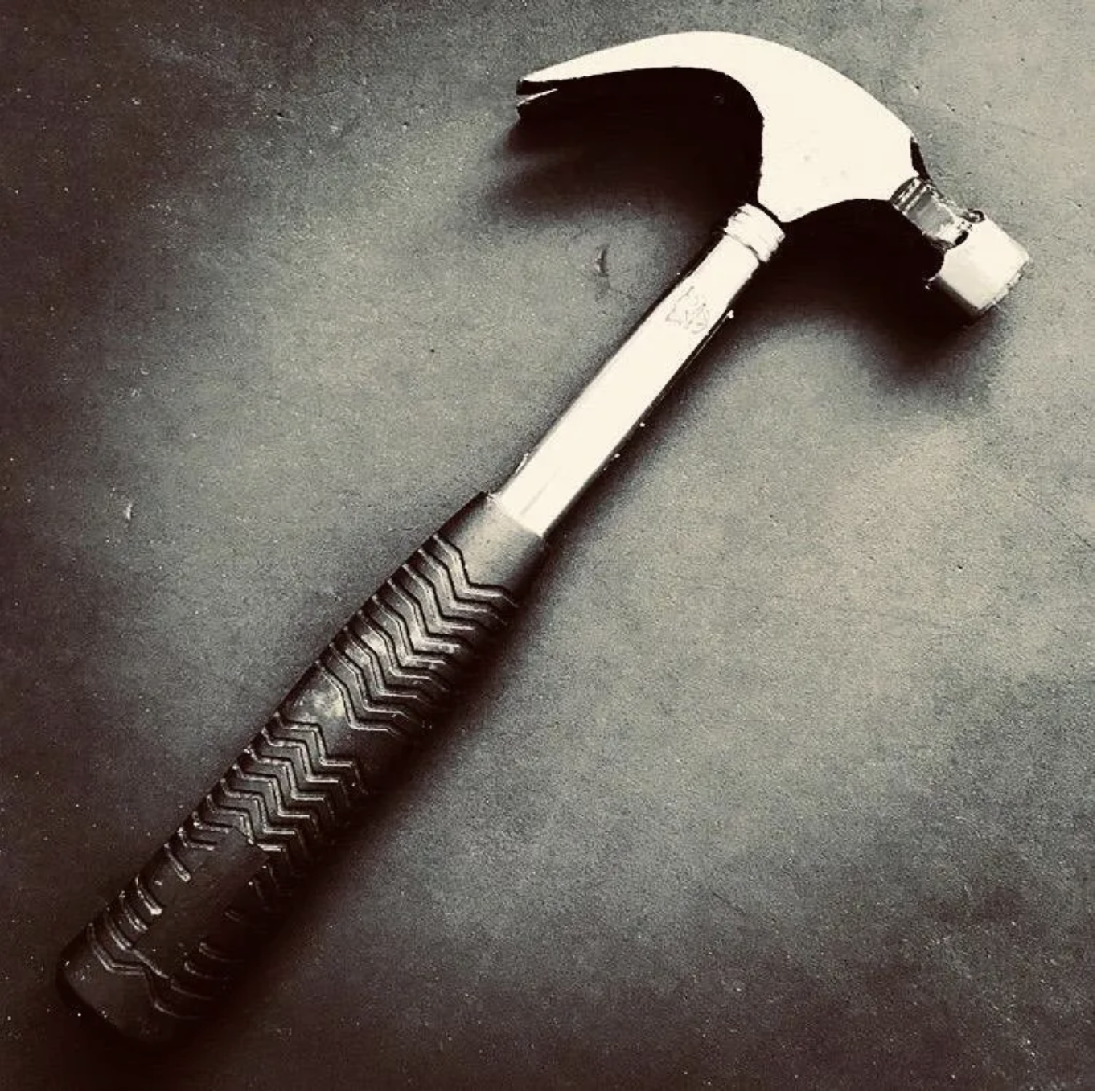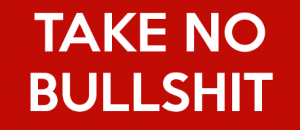I’m going to share with you the secret of how pretending can change your life. I’m going to do this by inviting us to play a game of Let’s pretend. I imagine most of us have played something like this before? Let’s pretend to be pirates, or astronauts, or adults with our lives totally together on social media…? Excellent.
So let’s pretend that you have a secret mission: You read this article, leave where you’ve been, and go to a shop. It’s a hardware shop. You walk to the counter. Say hello to the owner. They smile. You smile. You ask for a hammer. They bring you a hammer. They ask “What you are building?” You say “Nothing”. You smile. You go.
Now, if you’re not building anything, what do you do with the hammer? You had thought about using it as a doorstop. Or as a tool for strengthening your wrists. Or a pole around which one of your more adventurous plants can grow.
Instead you spray the hammer gold, put it on a pedestal, and display it in an art gallery.
And you look at people looking at it. You hear them coming up with ideas about its meaning and potential and purpose that you hadn’t even imagined. Just like the shop owner couldn’t imagine what you can, because they’re confined by their old labels, closed assumptions, inherited knowledge. Nevertheless, there, on that pedestal, is your art – sparkling.
Now, why does it matter if we can pretend that a hammer is something other than what we’ve been told it is? Well, I shall show you, by using three short examples: education, work, and relationships.
All these examples are based on this principle: it matters less what a thing is or seems to be; it matters more what we make of it.
This requires creativity, which, for the purpose of this article, is a combination of imagination, empathy, and a positive disregard for authority.
Education
We are institutionalized from a young age. Socialization: family, school, social networks. They tell us: “This Is A Hammer.” Closed. Set. Inherited.
If you’re lucky someone along the way will say, “Yes, go, be imaginative! … But not too much, and not too close to me.” The message being there are set lines you must not cross.
Conformity is a price we’re often willing to pay to be accepted, to be safe. And our brains like to conserve energy, so its easier to defer to authority. And yet we erode our capacity for creativity when we do so.
So much so that when a test developed for NASA to measure creativity — the ability to find new ideas to problems — was given to children as they progressed through school and into adulthood, the results showed that at 5 years old 98% of those children were scored as creative geniuses. At 10 years old 30%. At 15 years old 12%. And as adults just 2%. The same humans. The same as us. How much is lost along the way?
They will keep telling you “This Is A Hammer” and we must keep saying …. What else could the hammer be?
Work
The need to keep asking that question is illustrated in part by Forbes stating in 2018 that the skill most wanted by businesses, and the one most lacking, is creativity. Of course, this isn’t simply about business needs, it is about us, the humans making it possible, and how we experience living as we’re doing so.
And the frame I want to put on this today is between you and what you do, and I give you the example of the 3 bricklayers. When asked what they were doing the first says “I’m laying bricks.” The second says “I’m building a hospital.” The third says “I’m helping to save lives.”
What are you doing? What else could the hammer be?
Relationships
What possibilities do you see in your people?
One of the greatest gifts people have given me is to see me in ways I couldn’t see myself. This allowed me to begin to believe, and risk, and grow in ways I didn’t think were possible for me. Perhaps this resonates with you?
And if we make space for someone to exist differently, we get to exist differently too. Imagine the scene: a couple are having an argument in therapy.
A: You never tell me you love me!
B: I tell you all the time!
A: When you loved me you used to make me tea in the morning.
B: You never drank it, it always went to waste.
Chorus: You don’t appreciate me!!
The purpose of some tea is to be drunk. The purpose of other tea is not to be drunk, but to be made, given, received. The purpose of that tea is the expression of love.
Chorus: …Oh!
What else could the hammer be?
To conclude
Curiosity is a path that opens to awe and wonder and empathy and creativity and connection.
Lack of curiosity and failure of imagination lead to erasure of humanity. Which contributes to, as the political thinker Hannah Arendt termed, the banality of evil — institutionalized conformity — “I was just following orders.” “This Is A Hammer.”
The power to open questions, to pretend, is where we started. Now look at the word:
Pre-tend
To ‘tend’ is to have an inclination towards, to take care of, to soften.
To ‘pre-tend’, I contend, is to set one’s intention to have a positive inclination towards each others’ potential.
If laying bricks can mean saving lives, and if tea can mean love, and if we can become what we pretend to be, I leave you with this question: who would you most enjoy becoming? Do that. Because that’s how you live the power of the question What Else Could The Hammer Be?
Thanks for reading. If this has been helpful to you then feel free to let me know. And if you found it interesting then please feel free to share it so other people can find and enjoy it too.
(Originally published on Medium in 2019 https://medium.com/@eveparmiter/how-pretending-can-change-your-life-f0b306c4d4cc)



